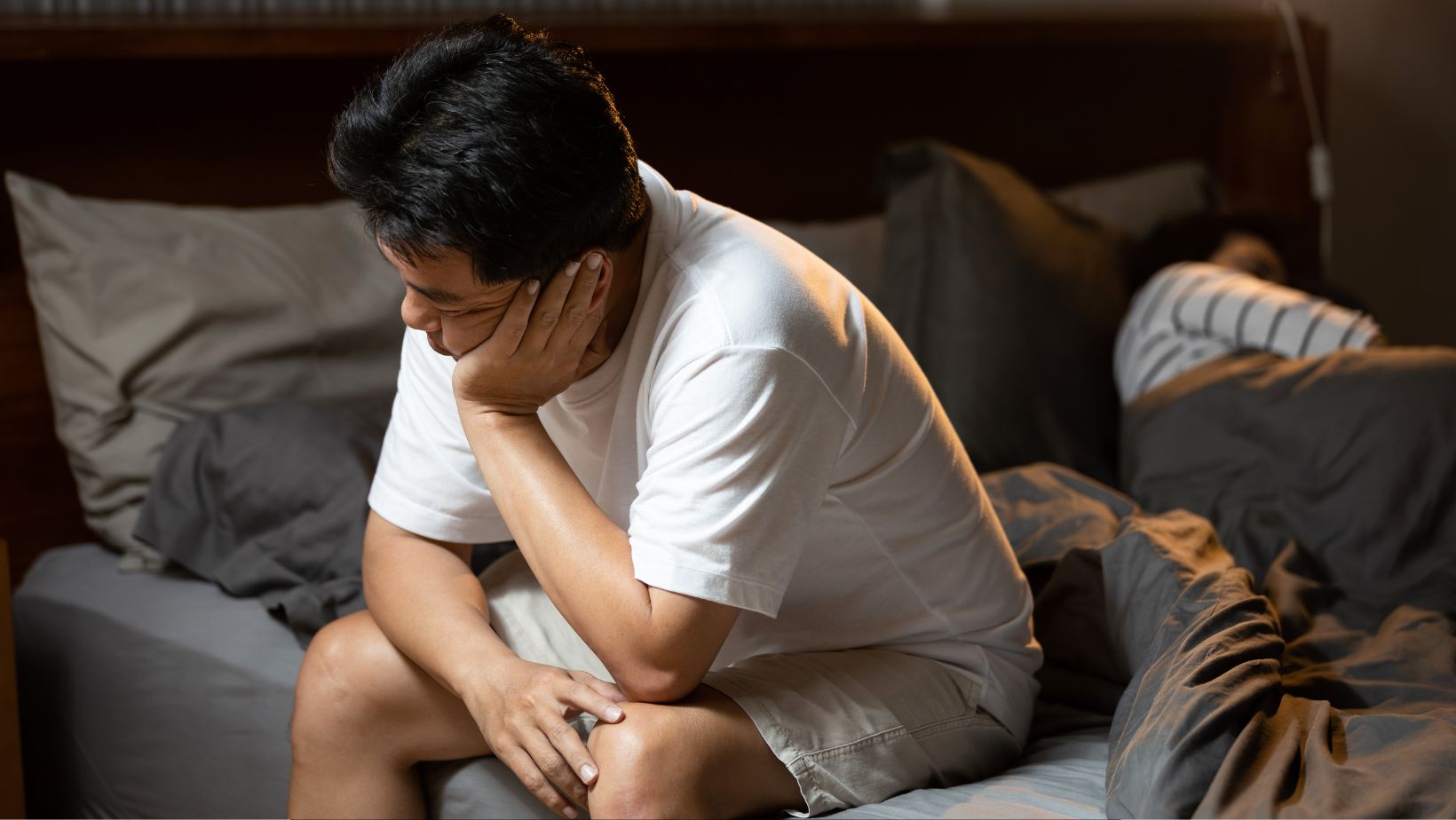Hormonal imbalances in men can wreak havoc on their physical and emotional well-being. From decreased libido and erectile dysfunction to mood swings and weight gain, the symptoms can be both distressing and debilitating. Understanding the underlying causes of these imbalances is crucial for taking effective action.
That said, this guide will discuss the key factors that contribute to male hormonal imbalance. It will explore the roles of lifestyle choices, stress, medical conditions, and other environmental influences.
Age
As men age, their testosterone levels naturally decline, with a noticeable drop occurring after the age of 30. This process, known as andropause, can bring about a variety of symptoms, including reduced muscle mass, lower energy levels, decreased libido, and mood swings. While this decline is a normal part of aging, for some men, the reduction in testosterone can be significant enough to cause noticeable hormonal imbalances. In such cases, hormone therapy treatment may be considered to help restore testosterone levels and alleviate the associated symptoms.
Chronic Stress
Stress has a profound impact on the endocrine system, particularly through the production of cortisol, the body’s primary stress hormone. When men experience prolonged or chronic stress, their bodies remain in a heightened state of cortisol production, which can suppress testosterone levels. Cortisol and testosterone have an inverse relationship, meaning that as cortisol rises, testosterone falls. This hormonal imbalance can lead to symptoms such as reduced muscle mass, weight changes, low libido, and fatigue.
Obesity
Excess body fat, especially around the abdomen, is a significant contributor to hormonal imbalances in men. Fat tissue converts testosterone into estrogen, a hormone more prevalent in women, which can lead to a skewed testosterone-to-estrogen ratio in overweight or obese men. This imbalance not only lowers testosterone levels but also leads to symptoms like reduced energy, decreased muscle mass, and erectile dysfunction. Moreover, obesity is often associated with insulin resistance and inflammation, both of which can further disrupt hormonal balance.
Lack of Physical Activity
Physical activity, particularly resistance and strength training, plays a crucial role in maintaining healthy testosterone levels.

A sedentary lifestyle can lead to muscle loss, increased body fat, and lower testosterone production. Regular exercise stimulates hormone production and helps regulate the balance between testosterone, cortisol, and other important hormones. In contrast, a lack of exercise can exacerbate hormonal imbalances, particularly in conjunction with poor diet and stress.
Poor Diet
Diet has a direct impact on hormone levels, as the body requires specific nutrients to produce and regulate male sex hormones. A diet high in processed foods, refined sugars, and unhealthy fats can contribute to insulin resistance, increase inflammation, and disrupt hormonal balance. Additionally, deficiencies in key nutrients like zinc, magnesium, and vitamin D can impair testosterone production. Conversely, a balanced diet rich in whole foods, healthy fats, lean proteins, and vegetables can support hormone health and even help you produce more cum.
Sleep Deprivation
Quality sleep is essential for proper hormone production and regulation, especially testosterone. Testosterone levels are highest during sleep, particularly in the early morning hours, and a lack of deep, restorative sleep can significantly reduce the amount of testosterone produced. Men who suffer from chronic sleep deprivation or sleep disorders, such as sleep apnea, may experience lower testosterone levels and increased cortisol production. Over time, this can lead to fatigue, irritability, unexplained weight gain, and a host of other symptoms related to hormonal imbalance.
Medications
Certain medications can interfere with hormone production and balance. Steroids, often used to treat inflammatory conditions, can suppress the body’s natural production of testosterone. Similarly, antidepressants, particularly selective serotonin reuptake inhibitors (SSRIs), may negatively affect testosterone levels. Opiate painkillers can also reduce testosterone production by suppressing the hypothalamic-pituitary-gonadal (HPG) axis, the system responsible for regulating hormones in the body.
Alcohol and Drug Use
Excessive alcohol consumption and recreational drug use can severely impact hormonal balance. Alcohol can impair the liver’s ability to detoxify and process hormones, leading to an accumulation of estrogen and a reduction in testosterone. Heavy alcohol use can also damage the testes, which are responsible for testosterone production. Similarly, recreational drugs like marijuana and opioids can interfere with the body’s hormone-regulating mechanisms. Regular use of these substances can lead to decreased libido, mood changes, and other symptoms of hormonal imbalance.
Endocrine Disorders
Endocrine disorders, such as hypothyroidism, hyperthyroidism, and adrenal fatigue, can directly affect hormone production and regulation.

The thyroid gland plays a pivotal role in metabolism and energy regulation, and its dysfunction can lead to imbalances in testosterone and other hormones. Adrenal fatigue, often caused by chronic stress, can disrupt the production of cortisol, leading to fatigue, weight gain, and reduced testosterone levels. These conditions require medical diagnosis and treatment to restore hormonal balance, and management often includes lifestyle changes, medication, or hormone replacement therapy.
Environmental Toxins
Exposure to environmental toxins, particularly endocrine-disrupting chemicals (EDCs), can interfere with the body’s hormonal system. EDCs are found in various products such as plastics (BPA), pesticides, and personal care products. These chemicals mimic or block hormone receptors, disrupting normal hormone production and function. In men, exposure to these toxins can reduce testosterone levels, impair fertility, and increase the risk of chronic diseases.
Conclusion
Hormonal imbalances in men can significantly impact their physical and emotional well-being. By understanding the key factors that contribute to these imbalances, men can take proactive steps to address them and improve their overall quality of life. Lifestyle modifications, stress management, medical interventions, and targeted supplementation can all play a role in restoring hormonal balance.
